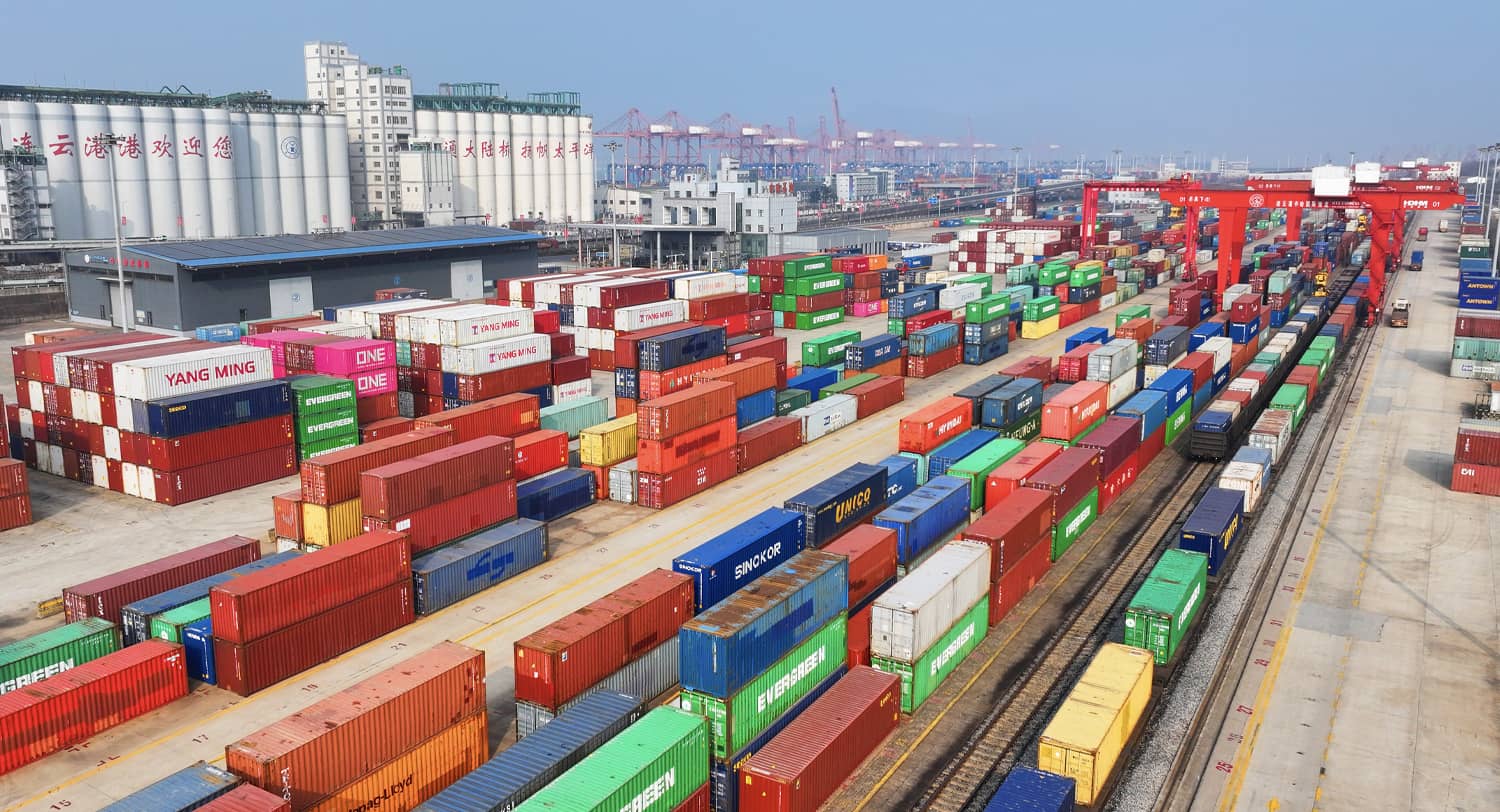Positioning Kazakhstan as the Strategic Hub of the New Silk Road: Navigating Internal Challenges and External Threats




The Middle Corridor, officially known as the Trans-Caspian International Transit Route, presents a unique opportunity for Kazakhstan to establish itself as a pivotal hub in the new Silk Road. This strategic transit path spans from China's western provinces, crossing the expansive Kazakh steppe, traversing the Caspian Sea, and slicing through the mountainous terrain of the South Caucasus before bifurcating towards Europe via Turkey and the Black Sea.
This route stands out as it offers a significantly shorter path compared to traditional routes like the northern railroad across Russia or the maritime journey through the Indian Ocean. Despite logistical challenges posed by numerous transshipment points, interest in the Middle Corridor surged dramatically following geopolitical shifts in 2022. Russia's military actions in Ukraine redirected many international shippers to seek viable alternatives, consequently spiking container volumes across the Caspian Sea by an impressive 33% from 2021 to 2022.
Kazakhstan has notably stepped up to meet this increased demand, successfully mitigating shipping bottlenecks and handling over 4.5 million tons of container cargo in 2024, with its modernized ports strategically positioned to manage up to 6.1 million tons annually. Transit times have improved dramatically, with goods now traveling efficiently from central China to Germany in just 30 days, representing a substantial reduction from the 50-day peak transit duration experienced in 2022.
Key to the Middle Corridor's growing attractiveness is its strategic alignment with Western interests in securing critical minerals and substantially boosting supply chain resilience. Kazakhstan possesses abundant reserves of rare earth elements, which are absolutely essential for global energy transitions and advanced technology manufacturing. This advantageous positioning allows Kazakhstan to become a vital conduit for efficient mineral transport from Central Asia directly to European markets, significantly reducing over-reliance on traditional Chinese-dominated trade routes.
The Kazakh government has actively indicated its commitment to transforming the Middle Corridor into a crucial channel for transporting valuable minerals and metals to Europe. This strategic focus represents a potential win-win scenario for both Western stakeholders seeking supply chain diversification and regional powers aiming to enhance their economic sovereignty and international trade standing.
However, significant challenges loom over the Middle Corridor's continued development and long-term sustainability. Climate change poses particularly serious risks to the region, with Central Asia experiencing temperature increases at double the global average rate. President Kassym-Jomart Tokayev's remarks at the Astana International Forum emphasize these pressing environmental concerns affecting the entire region.
Declining water reserves and steadily receding Caspian Sea levels demand immediate and sustained attention from regional authorities. These environmental changes directly impact critical mining operations and significantly affect the docking feasibility of large commercial vessels essential for international trade. The water-intensive nature of mining operations creates additional pressure on Kazakhstan's already strained water resources, complicating the balance between industrial development and environmental sustainability.
Geopolitical uncertainties add an additional complex layer of risk to the corridor's future prospects. Potential changes in international sanctions policies could make the Northern corridor through Russia attractive again, potentially dampening overall demand for the Middle Corridor route. However, with competitive shipping prices now closely matching those of the established Northern route, Kazakhstan and its regional partners maintain significant leverage in preserving their strategic trade conduit status.
Despite these multifaceted challenges, Kazakhstan has demonstrated remarkable resilience and adaptability in optimizing corridor operations. The country has successfully managed intricate logistics involving multiple transshipment points, from rail to road, maritime back to rail systems, and various other complex transportation modes. This logistical complexity, while challenging, has been systematically addressed through infrastructure improvements and enhanced coordination mechanisms.
The surge in container traffic following 2022 geopolitical events highlighted both the corridor's potential and existing bottlenecks. Although cargo volumes experienced temporary fluctuations in 2023, Kazakhstan's consistent performance in processing substantial container cargo volumes demonstrates the country's growing capacity and operational expertise in managing international trade flows.
Kazakhstan's strategic response focuses on maintaining competitive advantages through optimized shipping costs and enhanced service reliability. By leveraging its abundant mineral wealth, particularly rare earth elements crucial for renewable energy technologies, Kazakhstan positions itself as an indispensable link in global supply chains supporting the worldwide transition to sustainable energy sources.
The Middle Corridor represents more than a simple trade route; it embodies a fundamental shift in global economic dynamics and regional connectivity patterns. As European companies and Western governments increasingly prioritize supply chain resilience and diversification away from traditional dependencies, Kazakhstan's role becomes increasingly critical in facilitating this transition.
The corridor's development requires continued investment in infrastructure modernization, environmental adaptation strategies, and diplomatic coordination among participating nations. Success will depend on Kazakhstan's ability to balance rapid economic development with environmental stewardship, ensuring sustainable growth that can withstand both climate challenges and geopolitical uncertainties.
Moving forward, Kazakhstan's proactive approach to enhancing the Middle Corridor's competitiveness through strategic pricing, infrastructure development, and resource optimization positions the country as a key player in transcontinental trade. The combination of geographical advantages, mineral wealth, and adaptive capacity creates a foundation for long-term success in connecting Asian and European markets through this vital transportation network.

Comments